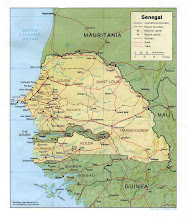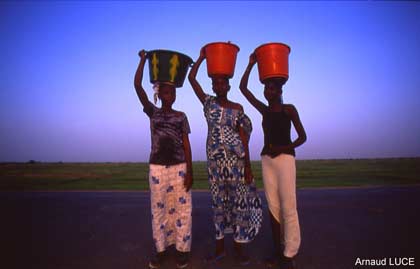There appears to be growing enthusiasm lately for solar energy by the Senegalese authorities. At last spring's UNIDO renewable energy conference at the President Meridian (which I attended ex-officio), nuclear power was touted by the Wade administration. I don't know if the security and other concerns with nuclear have dampened that enthusiasm (which non-U.S. developed countries were frowning upon). But solar does have advantages of decentralized, scalable features. Here's the top of today's Reuters story:
"DAKAR (Reuters) - Senegal hopes to rein in surging electricity prices, reduce frequent blackouts and power most of its street lighting through an energy policy using solar panels, the government said Friday.
"Located on Africa's west coast at one end of the arid Sahel belt south of the Sahara, Senegal has huge solar potential but has so far lacked the expertise and investments to harness it."
"President Abdoulaye Wade, 82, instructed his energy minister to extend the national electricity grid over the entire country and build a factory making low-energy light bulbs, a government statement summing up Thursday's cabinet meeting said.
"U.S. space agency NASA scientists have identified a location in nearby Niger as the sunniest piece of land on earth, and renewable energy campaigners say the region has huge solar generating potential.
"'He (Wade) has also decided to put in place an energy-saving and management policy to lower prices for electricity consumers and reduce the negative effects of costs on our nation's economic development,' the government statement said.
"Like many African countries, Senegal has suffered long-term underinvestment and neglect of its power network. This has hampered economic development despite it being one of the region's most stable democracies since independence from France in 1960.
"Last month, crowds of youths smashed up offices of the state power utility Senelec in the capital Dakar to protest against frequent power cuts due to load-shedding.
Saturday, November 15, 2008
Power du jour: solar (yesterday, nuclear, tomorrow...)
Labels:
NASA,
power,
President Wade,
renewable energy,
Senegal,
solar,
United Nations
Subscribe to:
Post Comments (Atom)



No comments:
Post a Comment